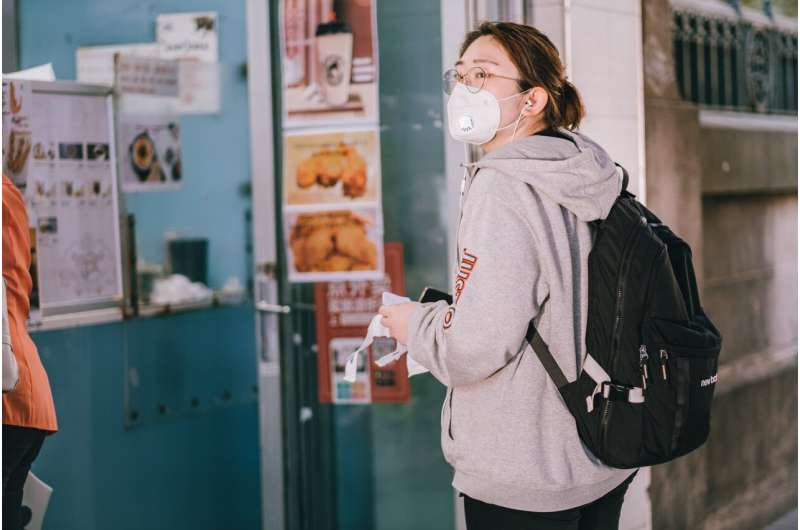
Natural infection with COVID-19 offered protection from reinfection when the gamma and delta variants predominated, according to a new University of Michigan study that also provides levels of antibodies needed to protect against reinfections.
According to the study, which took place in a community setting in Nicaragua, having infection-induced antibodies provided 69% protection against infection and 79% protection against moderate or severe illnesses. The study showed that second infections were less severe than first infections.
The study has been published as a preprint while it undergoes peer review.
“The course of the pandemic will be determined by the quality and durability of the protective immunity offered by both natural infection and vaccination,” said Hannah Maier, a postdoctoral research fellow at U-M’s School of Public Health and lead author of the report. “We hope having an immune correlate of infection-induced protection and a better understanding of the severity of second infections will inform vaccine policy and help guide targeting at-risk populations and other mitigation strategies.”
For their study, researchers used the ongoing prospective Household Influenza Cohort Study in Managua, Nicaragua. Started in 2017, the cohort was set to study influenza in households and was expanded in February 2020 to include the study of SARS-CoV-2 infection and disease. Participants are requested to report to the study health center at the first indication of any illness, where they are provided with primary care.
Blood samples for serology are collected annually in March-April, and an extra midyear sample was collected for those who consented to it in October 2020. A transmission sub-study is nested within the study, in which participants are monitored closely and tested regardless of symptoms once a SARS-CoV-2 case is detected in their household.
To test for SARS-CoV-2, researchers used real-time reverse-transcription polymerase chain reaction. They used a method called enzyme-linked immunosorbent assays or “ELISAs” to determine antibodies levels.
Researchers found that 62% of the cohort was seropositive for SARS-CoV-2 in March 2021 prior to a large second wave of COVID-19, with gamma and delta variants predominating. The researchers determined the antibody levels needed to prevent infection, illness, and moderate or severe disease. The levels needed for protection against moderate or severe disease were lower than the levels needed to prevent infection.
Aubree Gordon, senior author of the paper, said while second infections were somewhat less severe, they were not as mild as they had hoped for and that a strategy involving vaccination will be needed to ease the burden of the SARS-CoV-2 pandemic.
Asked about the new variants, she said as the SARS-CoV-2 pandemic continues in its second year, vaccine availability is still sorely limited, particularly in low- and middle-income countries.
“The emergence of variants is really stressing that vaccine equity is incredibly important. We’re all in this world, in this boat together and we really need to make sure the vaccines get out to low and middle income countries,” she said. “With omicron, there’s a lot that we don’t know. We anticipate that protection would be lower than what we saw for this study.”
In addition to Maier and Gordon, authors include: John Kubale, a research fellow at U-M’s School of Public Health; Angel Balmaseda, Sergio Ojeda, Nery Sanchez, Miguel Plazaola, Roger Lopez, Saira Saborio, Carlos Barilla and Guillermina Kuan, all with the Sustainable Sciences Institute, Managua, Nicaragua; and Eva Harris and Harm van Bakel, Mount Sinai, School of Public Health, University of California, Berkeley.
Source: Read Full Article